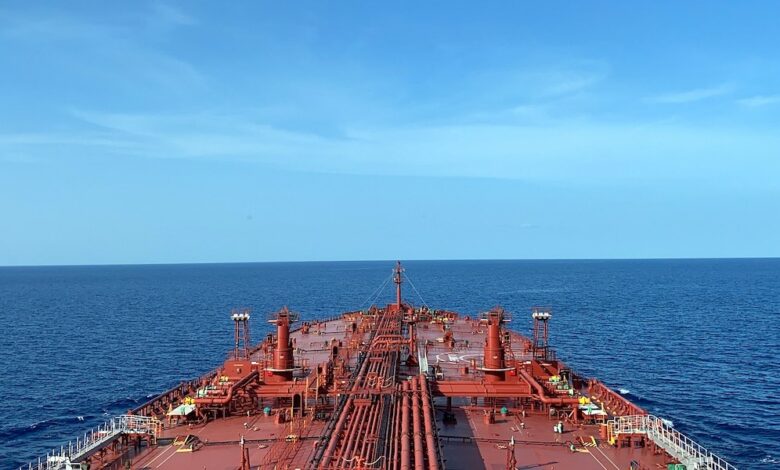20+-year-old tankers set to make up 11% of all tanker demand by mid-2025

Tankers still working aged above 20 years of age made up just 1% of the global tanker fleet pre-covid, and were still a rarity at 3% before the invasion of Ukraine in late February last year. They’re now on track to make up 11% of all tanker demand by mid-2025, according to data from brokers Braemar, numbers which ought to cause consternation for port states worried about oil spills from the sprawling so-called dark fleet hauling cargoes for the likes of Venezuela, Iran and Russia.
Major charterers tend not to take on tanker older than 15 years old, but many are having to rethink this as the fleet ages rapidly, and few newbuilds are in the pipeline.
Ships over 20 years old have seen their work rate – as measured by Braemar by average tonne-miles performed per ship each quarter – increase by 84% since the invasion of Ukraine.
The growth in utilisation of 20+year old tankers is most obvious for the coated tanker fleet, the analysis from the British broker suggests.
On the crude side, the biggest utilisation improvements of all are seen in the old aframaxes, which have seen almost a quadrupling in the average work-rate of 20+ year old assets. On the products side, 20+ year old MRs have seen their average work-rate more than double since the start of the war.
The rise of the vintage shadow fleet hauling cargoes for Iran, Venezuela and Russia has grown to number more than 600 ships today.
Major class societies, managers, and insurers have shunned former clients in Moscow, Tehran and Caracas, with substandard tonnage subsequently running into trouble at many destinations around the world.
The Pablo, an uninsured 1997-built aframax exploded last week, killing three crew, and with oil washing up on nearby shores. The ship has a history of moving Iranian oil.
The international tanker industry is braced for more accidents from this growing, ageing part of the industry.
“P&I Clubs are scratching their heads because this is not about breaking compliance rules, but about raw, naked accident risk and oil on feathers which will set decent shipping back to 1990,” one shipmanagement source told Splash in February.
